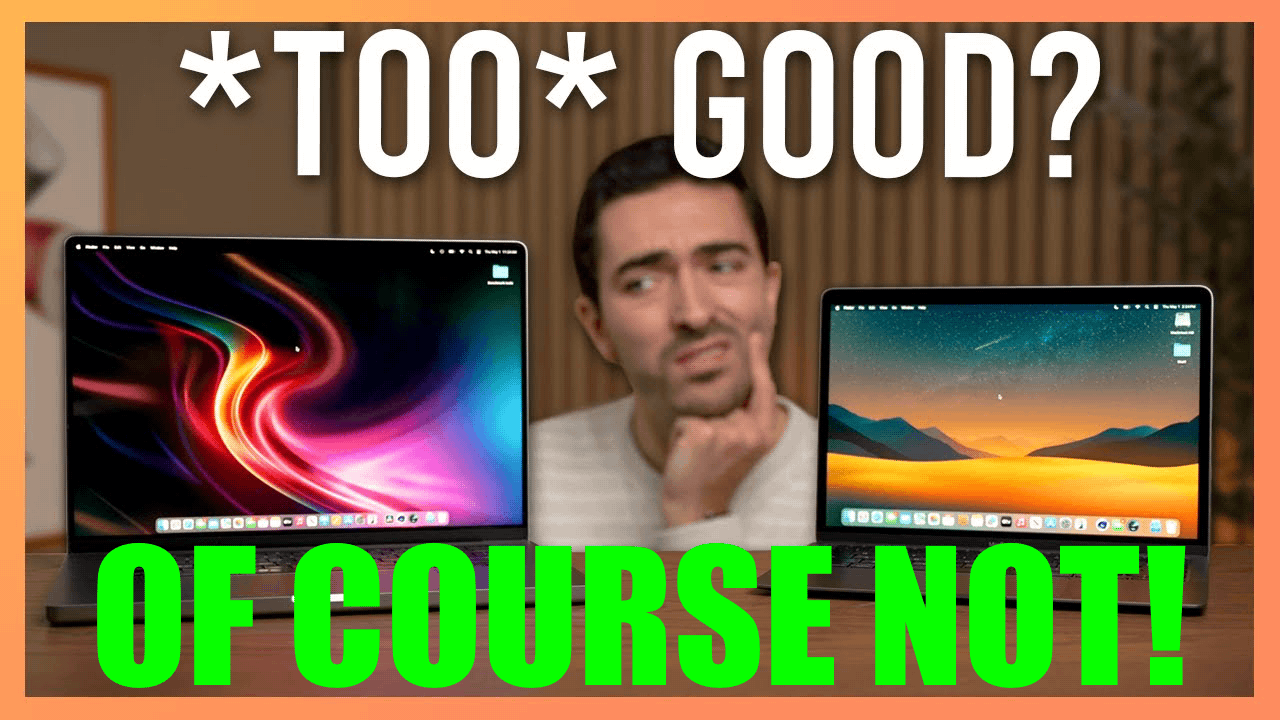Are Apple Silicon Macs too good?

In his latest video Luke Miani asks if #Apple made their new machines too good. Across two polls, having run a second one to verify the results of the first, respondents strongly indicated they had no intention of upgrading their early M-series Macs. I have a feeling Apple fully expected that, however. Watch the video on YouTube. We have three Mini’s, two M1 and one Intel, and have no need to upgrade them anytime soon. I may desire an M4 Mini, but I don’t need one. What is behind this?
To understand this there are, I believe, two different, unrelated factors that need to be taken into consideration:
- Apple’s primary drivers of revenue are the #iPhone, the App Store, and services.
- There are millions upon millions of #Windows users who might choose to move to Apple rather than be forced upgrade to Windows 11 but cannot since their hardware is incompatible, because #Microsoft has chosen to enshittify their desktop with ads and #AI, or both.
Apple’s personal computer marketshare has long been around 20% with Microsoft dominating for literal decades with 72% of the PC market. But it’s critical to understand that a decade ago Microsoft had well over 80%, and it continues to slowly decay. The iPhone plays a significant role in the fact that Apple has a $2.5T valuation, as consumers tend to upgrade every two years, giving Apple a mostly reliable playing field to project consistent revenues.
NOTE: Microsoft has a similar market capitalization to Apple but the important distinction is that Microsoft engages in a wide range of markets, including corporate software and services, as well as the Xbox and video games publishing, all of which contribute to the company’s bottom line. Apple still competes by offering a mere fraction of the models and verticals of its rivals.
That consistency is crucial. It allows Apple to not only sit back and just let their Mac users be Mac users and upgrade as they please, but also breathing room for some mild experimentation with various services and hardware. The iPhone Mini was available for the iPhone 12 and 13 then cancelled to be replaced by the Plus model, which has been around longer than the Mini. And the next rumored experiment will be the iPhone Air which may appear this October. They’ve also got enough in the bank to allow them to pivot and shift based on unforeseen market fluctuations or, in the case of component availability, weather the less than stellar rollout of the moderately underwhelming M3 processor.
And Apple isn’t blind. I’m quite sure that one major consideration in their calculations is Microsoft and their recent “efforts” to tank their own success. Users are unhappy with Windows 11 and in October of this year Microsoft will be ending support for the far more popular Windows 10. Many users are even downgrading to Windows 10 to escape the oppressive changes in Windows 11. In addition, the upgrade to Windows 11 requires support for TPM 2.0 which will “relegate” millions of unsupported systems to be discarded or sold for cheap, an outcome that is exciting many nerds over the prospect of a torrent of dirt cheap or free computers which can happily and securely run #Linux and other operating systems. Linux is an easy and capable migration path, but being honest with ourselves, most Windows users won’t go this direction.
I think Apple knows this. For one, they’ve maintained a stability in offerings that is appealing when compared to Microsoft’s numerous radical shifts over the years, the frequency of which has started to turn off consumers. Second, Apple has been aggressive in allowing resellers to offer significant sale pricing and even has an exclusive deal with Walmart to sell new M1 Macbook Air base models for $700 and which is on seemingly permanent sale for $650. In most of Apple’s history this is unprecedented, as they have for decades required resellers to match their own pricing and not offer sales. Finally, Apple’s resale value for their Intel models has dropped precipitously and used M1 and M2 machines are a lot more affordable than they used to be, presenting an enticing option for budget buyers.
Apple, for the most part, has played the long game. Pixar focused on getting one particular element perfected for each film so they might add that element to their toolbox for later films like fur in Monsters Inc. and the ocean in Finding Nemo. Apple has done much the same, working on iterations of various elements of their systems, refining them until they meet their internal expectations for excellence. I don’t think it’s a coincidence that Steve Jobs ran both and had, with help from others to manifest his vision, been instrumental in forming the foundations of two entire industries. Ingest that in whatever form you prefer.
The short answer to the question posed by Luke is no. The suggestion that CEO Tim Cook and the entire team at Apple could have miscalculated that the potential longevity of their products could cause Apple, one of the wealthiest corporations on planet Earth, to disintegrate or fall into the doldrums of relevance is in itself a miscalculation of what Apple is and how it operates. Is Apple flawless? Hell no. Most recently, I think they horribly miscalculated both the retail price and consumer interest in Apple Vision. There are other failures dotting Apple’s history, as well.
On the other hand, they basically own the tablet market. Full stop. They swap first and second place with Samsung for mobile phone volume, and Samsung has to make dozens of models to compete with Apple. AirPods are stupid popular. The Apple Watch has a huge chunk of the smart watch market. Apple is doing well, and all whilst offering a fraction of the options of others they compete with.
#tech #technology #opinion